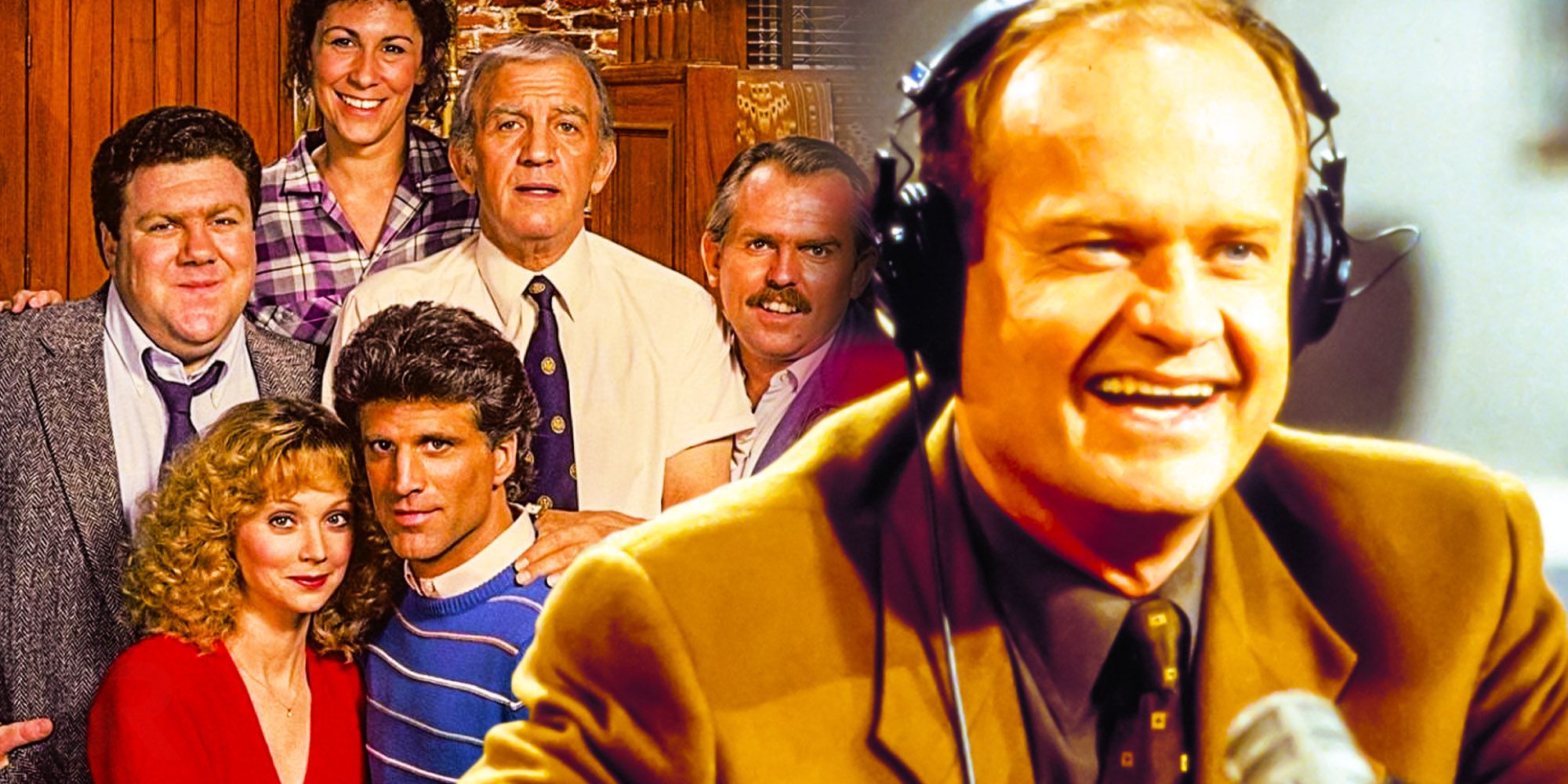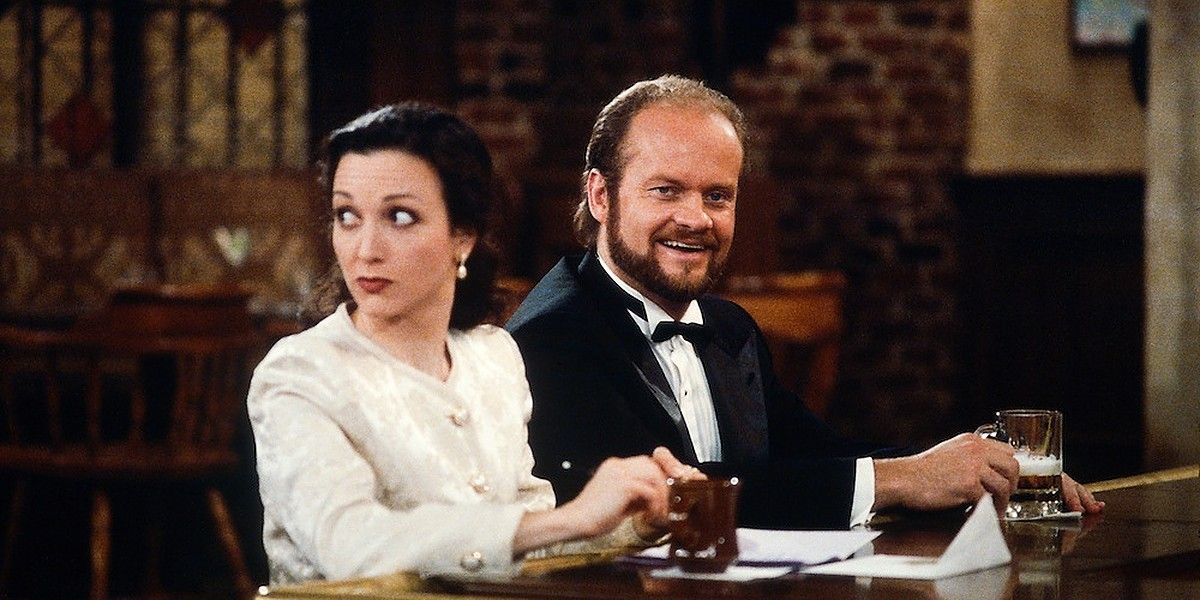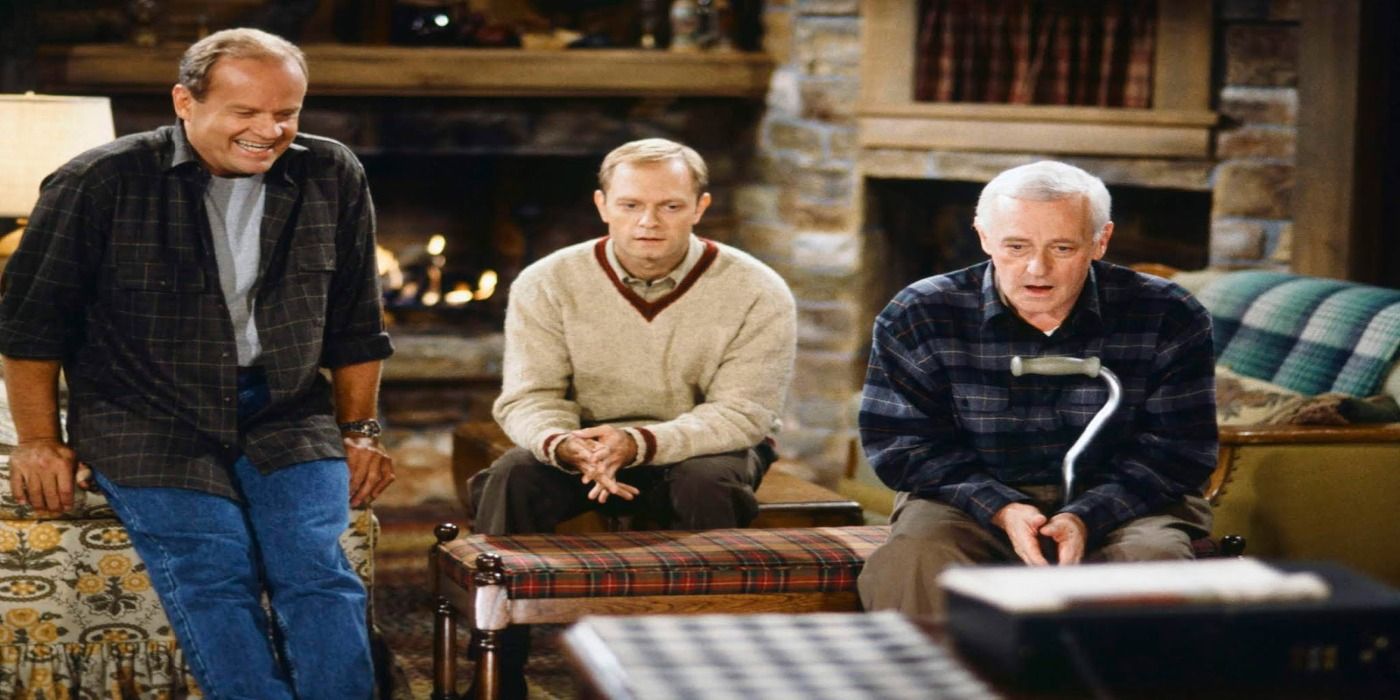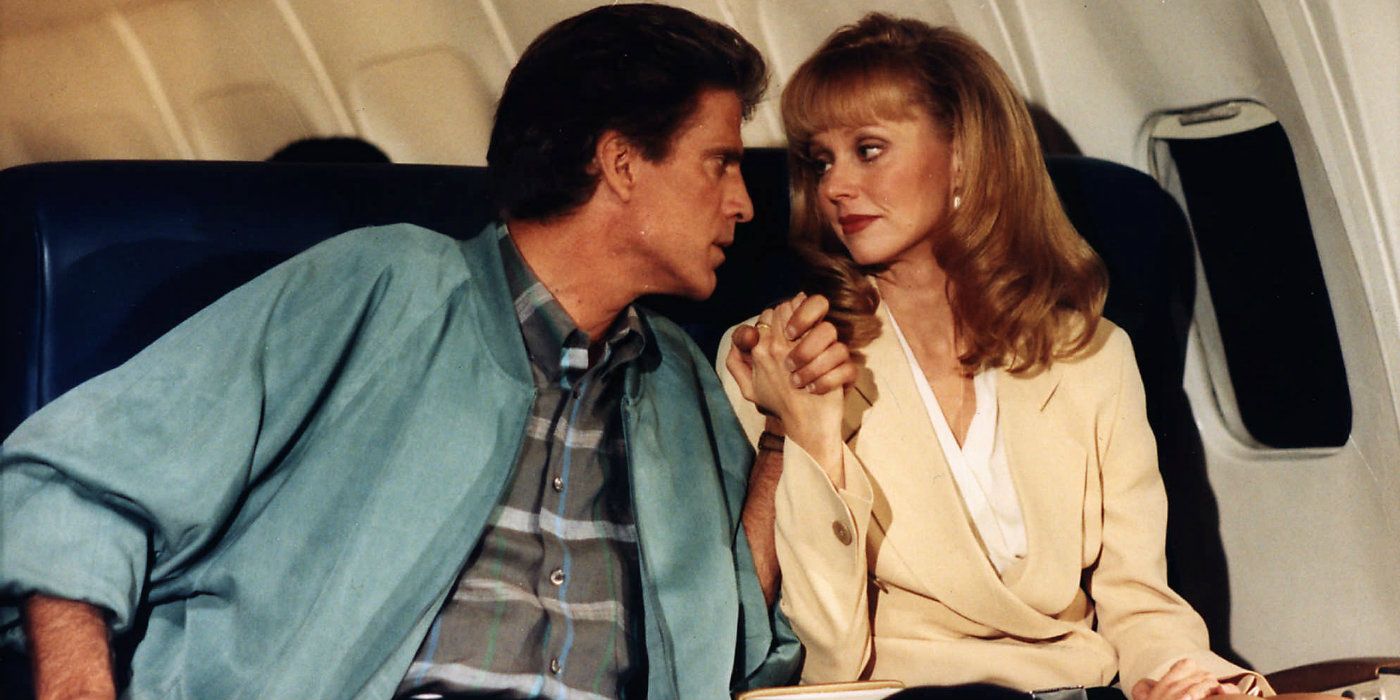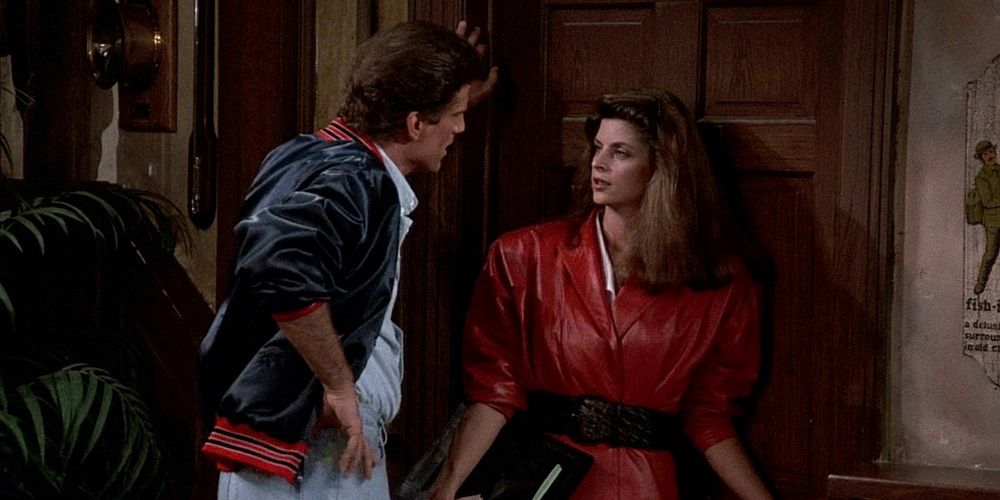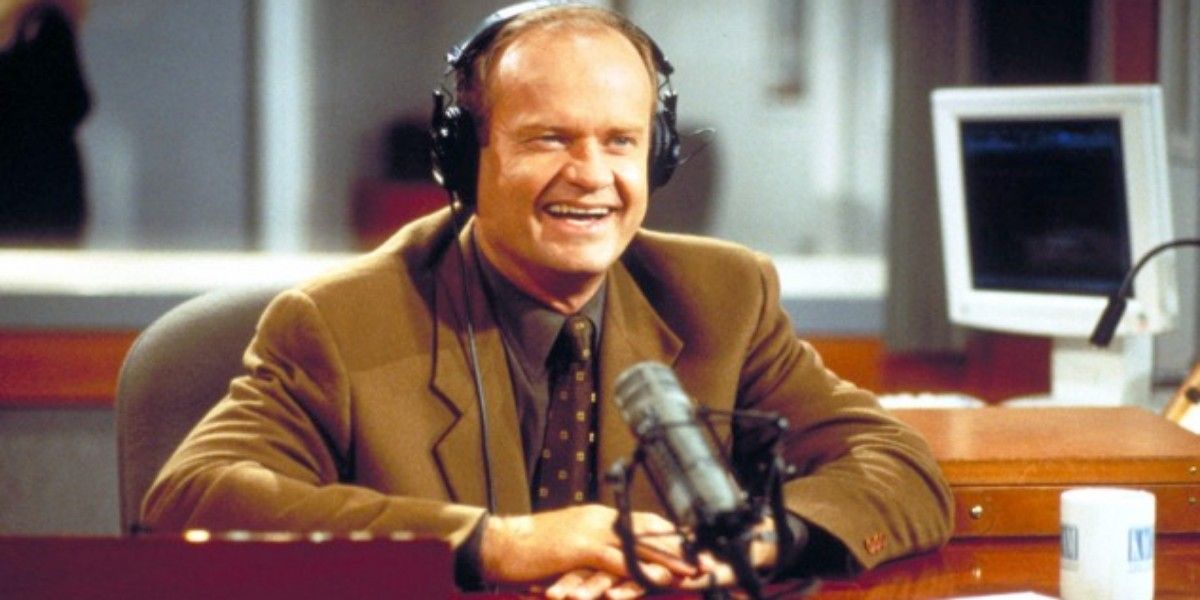With the Frasier reboot, audiences are reexamining which of the sitcoms is better between Frasier and its predecessor Cheers. Dr. Frasier Crane (Kelsey Grammer) was first introduced in a season 3 episode of Cheers as a new boyfriend for Diane Chambers (Shelley Long) following her breakup with bar owner Sam Malone (Ted Danson). The Frasier character was initially intended to be a guest star but grew to become a series regular because of Kelsey Grammer's chemistry with the other actors. Frasier's character even outlasted Diane Chambers after actress Shelley Long's season 5 Cheers exit. Later, after Cheers ended in the summer of 1993, Frasier debuted that same fall.
Focusing on Dr. Crane as he relocates from Boston back to his hometown of Seattle, Frasier has carved out a legacy of its own outside the shadow of its parent series, due to its unique wit, family dynamics, and the strength of its storylines. Considering the monumental success of Cheers during its 11-year run - and the miserable failure of its first spin-off series The Tortellis - it seemed impossible that Cheers' second spin-off Frasier could ever live up to the original's legacy. However, Frasier matched its predecessor and, in some ways, exceeded Cheers altogether. Despite finding its own unique niche, Frasier never lost its connection to its predecessor Cheers. Many Cheers actors returned in Frasier over the years to help ensure that was the case. There are major differences between the two sitcoms that set them apart from each other and fans have spent decades debating which show is better. The critical distinctions between Frasier and Cheers are the character work, humor, storytelling, and consistency.
Kelsey Grammer's Performance In Frasier Compared To Cheers
On Cheers, Kelsey Grammer largely plays Frasier Crane as the change-of-pace comedic character he's intended to be. Frasier is the butt of many jokes by the series' mainstays as a result of his pretentious, often snobby attitude that makes him distinct from the other bar patrons. Frasier Crane's dialogue and jokes offer great contrast with characters like Sam, Carla, Cliff, and Norm because they would never speak the way Frasier does. However, Frasier's character comes full circle, eventually becoming a beloved part of the group and playfully making jokes at the expense of others just as much as they do to him.
Where Frasier's characterization and Grammer's performance differ from Cheers is that instead of being the change of pace, Grammer is tasked with setting the pace comedically. The other actors have to play off of him instead of the other way around. Grammer also has to shoulder more dramatic and heart-felt storylines in Frasier than he ever did on Cheers. With Frasier Crane serving as the center of the spin-off, Frasier sees Grammer play a more grounded character. Frasier co-creator David Lee explained the differences between Frasier and Cheers by saying the new series "required calming the character down a bit" and that effort shows in Grammer's performance.
How Frasier's Comedy Was Different From Cheers'
Making the switch to focus on Frasier Crane, his family, and coworkers instead of using him as a side character gives Frasier a very different sense of humor from Cheers. Whereas Cheers is about a group of friends who all hang out together in a bar, the cast of Frasier has unique situational relationships that change the dynamics. Establishing the sibling relationship between Frasier and his equally intelligent, wealthy, and snobby brother Niles Crane (David Hyde Pierce) allows both actors to flourish because it gives the characters someone to match wits with - an opportunity rarely, if ever, available on Cheers. Some have pointed out that centering a TV show on rich, snobby, straight white men could make Frasier an impossible premise in the 2020s. However, the witty humor of Frasier has proven to be extremely popular for nearly three decades.
In addition, Frasier found creative ways to keep some of the humor that Cheers relied on by keeping Frasier Crane in situations where he was still the out-of-touch snob. Frasier's job at the radio station, his frequent trips to Cafe Nervosa, his father Martin, and characters like Roz Doyle and Daphne Moon offered countless opportunities for him to be made fun of by more grounded characters on Frasier just like he had been in Cheers.
Frasier vs. Cheers: Which Show Had Better Storylines?
Even though Frasier doesn't have any single storyline as individually iconic as Sam and Diane's, Frasier was no slouch in the storytelling department. Sam and Diane's Cheers ending and their will-they-or-won't-they relationship is one of the best the sitcom genre has ever seen. However, other stories on Cheers weren't nearly as strong. Diane's replacement Rebecca Howe was a great character in her own right, but her chemistry with Sam never reached the heights of Diane's story. Neither did the stories of side characters like Norm and Cliff's friendship, Carla's failed marriage, Woody and Kelly's relationship, or even Lilith and Frasier's cheating scandals.
For many Frasier fans, the most endearing and enduring storyline of the show would be the romance between Niles and Daphne. Niles and Daphne's story stretched out over Frasier's entire run and created countless laughs and tense, emotional moments before its happy ending. In addition, running until the early 2000s allowed the show to dive further into storylines that wouldn't have been available to Cheers. For example, Frasier was progressive and subverted LGBTQ sitcom tropes to make clever social commentary. Frasier's father Martin Crane being a disabled, retired police officer and widower also allowed for various touching storylines, including Martin attending the parole hearing of the man who shot him. Fraiser also spent more time focusing on the home lives of its side characters than Cheers, offering numerous funny romances for Roz Doyle. Lilith and Frasier's on-again, off-again relationship was also a gold mine for comedy that Frasier was careful to never overly rely on.
Did Frasier Or Cheers Go Downhill (& When Did It Happen)?
Frasier was remarkably consistent for its 11-season run, keeping most of the main cast together throughout the entire series and benefiting from that. In contrast, Cheers went through many cast changes both out of their control - e.g. the passing of Coach Ernie Pantusso actor Nicholas Colasanto and the departure of Shelley Long's Diane Chambers. Cheers was able to remain an excellent show throughout the entire series, but Long's departure represents a clear line of demarcation where the series started to go downhill and a permanent "what if?" New characters like Woody Boyd (Woody Harrelson), Lilith Sternin (Bebe Neuwirth), and numerous others became household names in their own right. Cheers was never able to fully let go of Diane and that hampered its later seasons.
Why Frasier Was Better Than Cheers
Ultimately, Frasier was a better series than Cheers because Frasier was able to build a more stable and consistent formula throughout its 11-season run than its parent series. The cast continuity and the decision to expand beyond the confines of the bar allowed Frasier to take more risks, build deeper relationships between its characters, and smartly explore issues that Cheers simply could not match. Frasier stands today as one of the rare spin-offs to exceed its predecessor's legacy.
Whether the Frasier show reboot proves to be a success or not, the fact that it's being made at all speaks to Frasier's endearing popularity. Cheers, the place where everybody knows your name, is a timeless icon in its own right. After getting his own show, Frasier Crane pulled off something more difficult, making a name for himself that everyone remembers.

